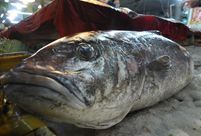 Bikini show in 2014 China Final of Miss Tourism World
Bikini show in 2014 China Final of Miss Tourism World
 Close-up view of August Aerobatic Team
Close-up view of August Aerobatic Team
 Goddesses married in 2014
Goddesses married in 2014
 Polar region photos raise worldwide awareness of global warming
Polar region photos raise worldwide awareness of global warming
 Get off at the last stop — Beijing Subway in vision
Get off at the last stop — Beijing Subway in vision
 Top 100 beauties in the world!
Top 100 beauties in the world!
 Gallery: Who is the most beautiful one?
Gallery: Who is the most beautiful one?
 If you like autumn, put your hands in the air!
If you like autumn, put your hands in the air!
 Fan Bingbing's "Queen style" in new play
Fan Bingbing's "Queen style" in new play
 Lingerie show at 2014 Miss China
Lingerie show at 2014 Miss China
BEIJING, Dec. 23 -- The recent plunge of the Russian ruble has triggered worries of a run on emerging economies' currencies, but experts have played down the effect it will have on the renminbi.
Researcher at the Institute of Finance and Banking, under the Chinese Academy of Social Sciences, Peng Xingyun on Tuesday was upbeat that the ruble's depreciation would not weaken the Chinese currency in the long run, although he acknowledged it would have short term adverse effects.
China's economy is adapting to its "new normal", characterized by slower growth but higher quality, which, it is hoped, can provide a solid foundation for a strong currency, Peng said.
Amid China's efforts to boost the internationalization of the RMB it will try to avoid a sharp depreciation of the currency, he said.
Drastic RMB depreciation could cause trade-related friction between China and the United States, as China has a trade surplus against the U.S., Peng said.
The ruble's recent depreciation has exerted no significant impact on China and China's economy and capital flows are normal, said Wang Yungui, an official of the State Administration of Foreign Exchange last Thursday at a press conference.
The spot exchange rate of China's currency dropped below 6.21 against the U.S. dollar last Thursday, the weakest point in almost five months.
Wang believed it to be "normal depreciation," stressing that the market was playing a more active role in pricing the yuan along with the central government's exchange rate reform measures.
Peng said the driving forces causing the ruble's depreciation did not apply to the RMB.
Russia's economic reliance on the oil industry was exposed as fluctuations in the price of crude oil triggered the ruble's slide, Peng said.
In addition, Russia's political relationship with the United States and Europe has been strained, and this also played a role in the currency's slump, Peng said, adding that speculative market activity had aggravated the situation.
The ruble's fall against the dollar on Dec. 15 was a record-low since the currency's crisis and default in 1998.
Since the beginning of this year, the Russian central bank has raised its key interest rate by 6.5 percentage points to 17 percent.
During a year-end press conference last week, President Vladimir Putin praised efforts by the central bank and the government to stabilize the currency and noted that it would take at most two years for the economy to rebound.
 Tempting Yunnan cuisine
Tempting Yunnan cuisine Joint anti-piracy drill
Joint anti-piracy drill Unknown 'monster' fish caught in Shandong
Unknown 'monster' fish caught in Shandong Beautiful Chinese woman
Beautiful Chinese woman Chestnut girl goes viral online
Chestnut girl goes viral online 20 years on: Relocated Three Gorges residents through lens
20 years on: Relocated Three Gorges residents through lens PLA HK Garrison veterans leave behind beautiful smiles
PLA HK Garrison veterans leave behind beautiful smiles Victoria's Secret Fashion Show
Victoria's Secret Fashion Show Representative beauties
Representative beauties AIDS response for expats
AIDS response for expats China set to lower GDP growth target
China set to lower GDP growth target Fake euros popular on Taobao
Fake euros popular on Taobao How long can Russia withstand the crisis?
How long can Russia withstand the crisis?Day|Week|Month